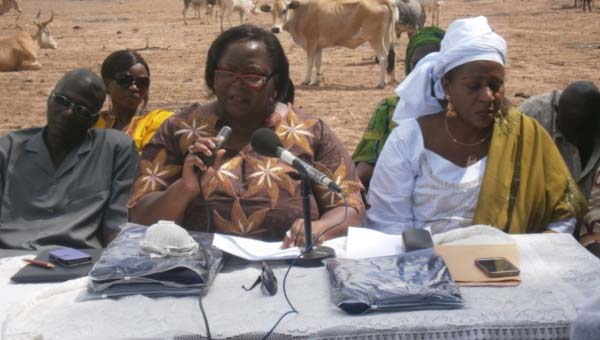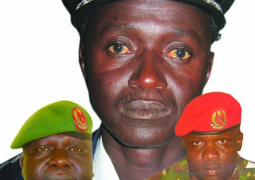
Food and Agriculture Organization (FAO) and the Department of Livestock Services Thursday launched the 2nd nationwide CBPP vaccination campaign at Mandinaba village in Kombo East, West Coast Region.
Speaking at the ceremony, Perpetua Ketapa Kalala, FAO representative, said they are gathered to launch the second round of the nationwide CBPP mass vaccination campaign of the entire herds of the country against the deadly cattle disease, the Contagious Bovine Pleuropneumonia (CBPP).
She said it constitutes a serious threat to cattle production in sub-Saharan Africa, adding that cattle are an important part of livelihoods of a great number of households and communities in The Gambia.
She added that the outbreak of the disease, it was estimated that CBPP could result in the loss of more than half of the national cattle herd which could have a devastating consequences, particularly for rural communities that depend largely on their cattle for their livelihood.
She said livestock subsector in The Gambia contributes 29.9 per cent to the agricultural GDP and 8.6 per cent to the national GDP, such a loss would have negative impact on the national and socio-economy of the country.
She said FAO supported through an emergency TCP project amounting to US469,000 equivalent to D19,229,000 for a period of two years.
She said the project was design to conduct a nationwide campaign to curb the spread of the disease, enhance limited technical knowledge and capacity of the staff on improved techniques for CBPP diagnosis, disease surveillance, as well as improve the capacities of national laboratories for disease diagnosis.
Dr Ablie Ceesay, acting Director General, Department of Livestock Services, said CBPP is spread by direct contact between infected and susceptible cattle.
He said the major constraints associated with CBPP control include poor reporting and transparency issues, weak epidemiological analysis, lack of effective vaccines and communication tools among others.
He said the weak recognition on the importance of the effect of CBPP disease on food security and its role in the economy and people’s livelihood is a cause for the low response of some livestock owners to measures such as vaccination programmes.
He said the Government of The Gambia through the Ministry of Agriculture continues to show its commitment to the control of CBPP by establishing the department of livestock.
Siffai Hydara, Governor of West Coast Region, said they recognize the tremendous assistance their development partners have been rendering since the outbreak of the cattle disease in the country.
She said in 2012, FAO, AATG livestock play a pivotal role in agriculture and rural economies of the Gambia, adding that not only do they produce food directly but they also provide key inputs to crop productions.
Ebrima Jallow, national coordinator of shepherd and livestock association, said he wanted the livestock owners to let their cattle be vaccinated in order to eradicate the disease in the country.
He said since the Ramadan is coming they are appealing to the Alkalos to use the permit correctly so they could fight cattle theft.



